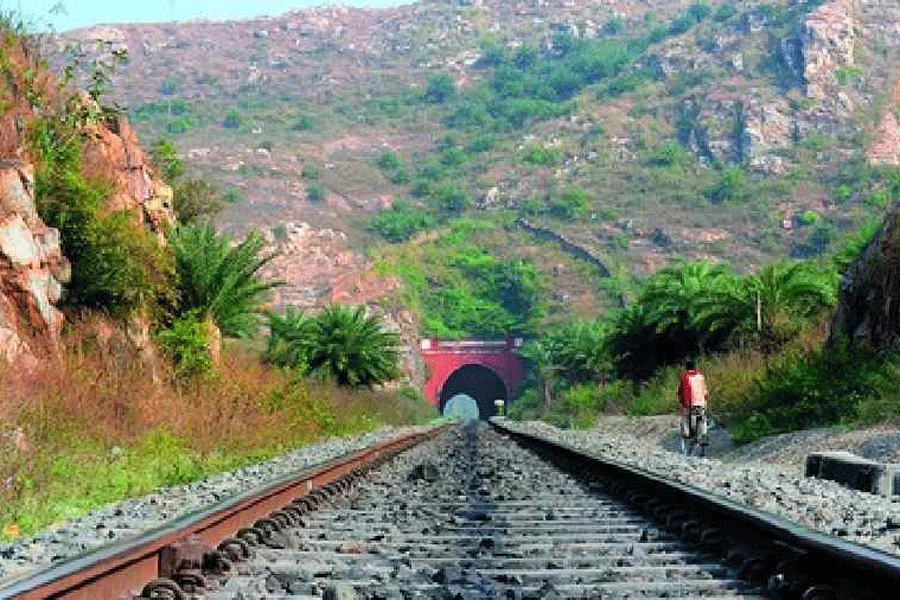Northern Railway has built the last of the 27 tunnels on the 111km Katra-Banihal stretch of the Kashmir rail project, seen as the last significant milestone in the decades-old project of connecting the Valley by train with the rest of the country.
Railway officials said they had achieved “breakthrough” — or created openings at both ends — on the 3.2km-long single-tube tunnel located at the foot of the Trikuta hills in the Katra-Reasi section, described as the most challenging milestone on the only incomplete section of the Udhampur-Srinagar-Baramulla Rail Link (USBRL) project.
“There were maximum issues with the (last) tunnel. The geography was not favourable but efforts continued. Our officers, technical team, agencies and foreign experts worked day and night and today the results are in front of you,” Roop Narayan Sunkar, member, infrastructure, in the Railway Board, told reporters in Jammu.
“This was the biggest hurdle in the 111km-long section. It is like a dream come true and a very big achievement for the country,” he added.
The Kashmir rail project, originally conceived over a century ago but declared a national project in 2002, has missed multiple deadlines. The project is expecting fruition early next year.
The 272km-long Udhampur (Jammu)-Baramulla (Kashmir) railway track is divided into three sections — Udhampur-Katra, Katra-Qazigund and Qazigund-Srinagar-Baramulla — of which a 161km stretch, most of which is within Kashmir, has already been commissioned and operationalised.
The remaining 111km-long Katra-Banihal section includes 27 tunnels, spread over 97km and 37 bridges.
Officials said the work on the 3.2km tunnel was eluding success for years, prompting the railways to try a new tunnelling method that involved pre-evacuation support measures to solidify the soil surrounding the proposed tunnel.
“It involved pipe roofing where pipes were inserted several metres into the mountain and through these chemicals were poured to turn the surrounding soil into a rock-solid formation, lest it loosens,” an official said.
Sunkar said the work on the Chenab bridge, the world’s highest railway bridge, and the Anji bridge, the country’s first cable-stayed bridge, had already been completed.
Railways minister Ashwini Vaishnaw on Wednesday told Parliament that the USBRL was perhaps the most difficult railway line undertaken in post-Independence India as the terrain, passing through the Himalayas, is full of geological surprises.
The minister said a cost of Rs 34,261 crore had been incurred up to March 2023 on
the project while an outlay of Rs 5,310 crore, the highest ever, had been allocated for the current fiscal.










